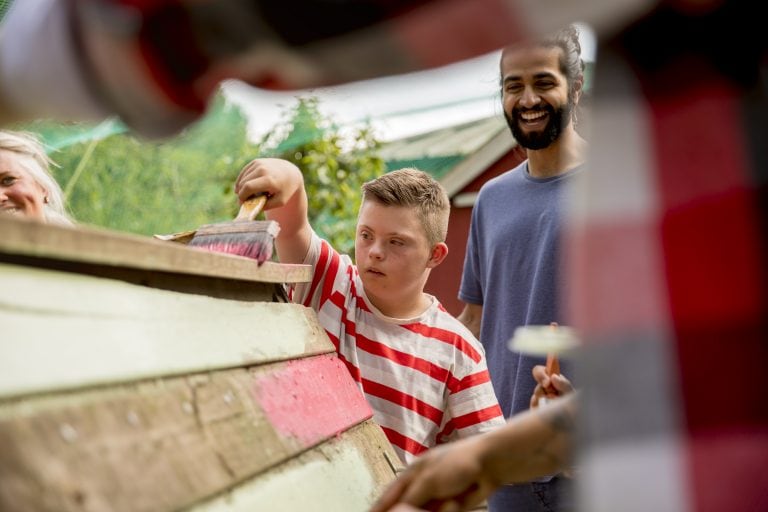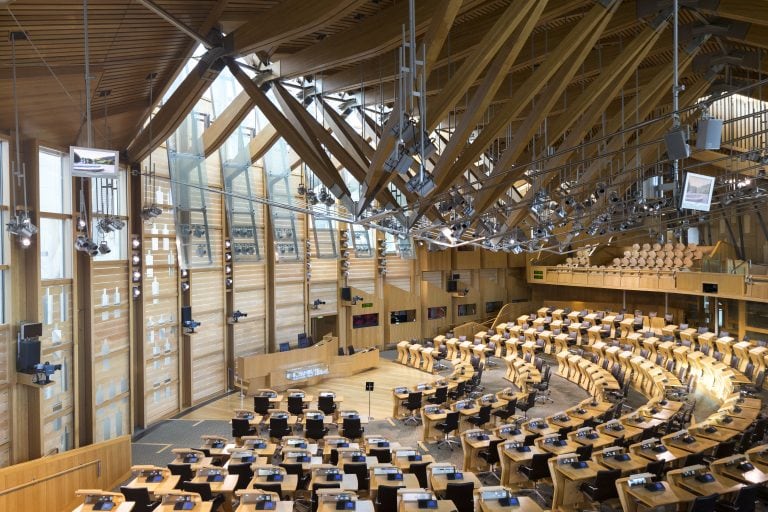UKGBC publish toolkit to scale the delivery of social value across the built environment

- The guide empowers built environment practitioners to support and enhance the delivery of social value outcomes across their projects through a simple and practical 8-step process.
- Delivery checklists equip decision-makers with the tools to complete day-to-day tasks which ensure community and occupant needs are prioritised throughout a project’s lifecycle.
- UKGBC’s guide cuts through the noise when it comes to social value guidance, offering a shared approach to social value delivery, developed in partnership with industry and informed by real world case studies.
- Social value is unique for each project, the flexibility offered by UKGBC’s guidance means it can be adapted to support any built environment project of any scale, as well as at an organisational level.
- Social Value outcomes are manageable, deliverable and conducive to the long-term sustainability of projects and should no longer be an afterthought when it comes to the sustainability of the built environment.
Prioritising social value across our building projects has the potential to unlock a range of social, economic and environmental benefits to society. From tackling economic inequality, fighting climate change, improving health and wellbeing, and more recently, shielding the vulnerable against the impact of the ongoing cost of living and energy price rises.
Since the launch of the Social Value Act in 2013 a significant amount of guidance on social value has been published for the built environment sector, ranging from measurement to embedding social value into procurement, planning and design. However, one of industry’s biggest barriers remains translating this guidance into a form which can be easily applied to the specific circumstances of stakeholder needs and the nature of individual projects.
Published today, UKGBC’s ‘Guide for Delivering Social Value on Built Environment Projects, seeks to respond to this challenge by offering a step-by-step process for delivering social value that can be flexibly applied to any built environment project of any scale – from a single built asset to an entire town regeneration project.
Building on UKGBC’s Framework for Defining Social Value, today’s guidance has been developed through testing the process for delivering social value on a range of real-world case studies and applying the learnings of this exercise to refine and improve it. Alongside an updated 8-step process, it includes:
- supplementary delivery checklists for senior decision-makers to use when leading built environment projects,
- detailed guidance notes aimed at practitioners who are responsible for day-to-day project delivery,
- and best practice examples.
The new guidance has been designed to be simple and manageable for project teams, ensuring social value is no longer an afterthought when it comes to the sustainability of the built environment.
The primary intention of UKGBC’s new guide is to support built environment practitioners responsible for delivering social value at a project level. Due to the versatility of the guidance, some of the principles will also support the development of corporate/portfolio-scale social value approaches, as well as be useful to local authorities who are seeking to ensure their assets are delivering against the needs of the local community. The guidance is also relevant to practitioners from any professional discipline within the built environment who have an interest in social value.
UKGBC’s Director of Communications, Policy & Places, Simon McWhirter said:
“Whether its climate change, rising energy bills or community well-being and safety, the places we live, work and play are at the forefront of many of society’s most critical issues. With our communities in ever more need of support, delivering social value across building projects should no longer be viewed as ‘nice to have’, but a necessity. Through setting out a logical process – which has been tried and tested in the real world – this guidance equips those tasked with delivering social value with an easy-to-use toolkit to ensure community and occupant needs are put front and centre as we design and deliver new developments and regeneration projects across the country.”
Avison Young’s Community & Charity Manager, Hannah Baines & Corporate Responsibility Manager, Chris Whetstone said:
“As a business that believes in the positive impact real estate can have, we want to give our staff the best tools to deliver places and spaces that promote environmental, economic and social wellbeing. The UKGBC Social Value Delivery guidance is one of these tools, providing useful support and advice on a complex topic that is increasingly top of mind for clients.
As a UKGBC Gold Leaf member, we were pleased to test the UKGBC Social Value toolkit on a pilot project at Swinton Square Shopping Centre, Salford, working in conjunction with our partners Groundwork and the EU UIA funded Ignition programme. We used our findings to inform this delivery guide, which is an essential tool for anyone keen to maximise the impact of their social value strategy.”
This guidance was created with thanks to our Social Value Programme Partners: Arcadis, Avison Young, Buro Happold, CBRE, Federated Hermes, Hoare Lea, JLL UK Ltd, Rebelleon and WSP.

Related downloads
Download Full Report
Related
From waste to social value

Government publishes new Social Value Model

UKGBC responds to the Scottish Government’s announcement that the 2030 climate target will be scrapped

Chancellor’s Spring Budget fails to address ‘urgent need for upgrading homes and buildings’

